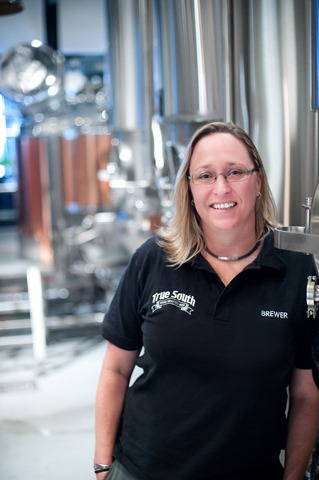
Contract brewing revisited
Contract brewing. Before we go too far into this, just In case some readers aren’t entirely aware… a lot of the beer you drink isn’t actually brewed at its own brewery. Some beers are honest about it and state the facts plainly, others are slightly cagey about it; not actually saying either way, and others are just flat out lying.
I’m not going to name and shame, the fibbers know who they are.
There is also a fairly new phenomenon which has been subtitled “gypsy” brewing, a term coined pretty much in reaction to the beers coming from the internationally renowned Mikkeller, who don’t have their own brewery but travel the world to brew in other’s.
Mikkeller aren’t the only high profile brewers to either not have their own brewery, or brew some of their beer at a different location. To list them all would take a long time and much more explanation than necessary, so let’s just say: there are a lot and more than most realise.
The lack of a brewery and the idea of contract brewing is one that is much discussed amongst beer lovers and there are many negative opinions out there. Often these opinions aren’t unfounded and in any bottle store around Australia you will find beers that are made purely as an exercise in marketing, not taste.
However, things are slowly changing and there are more and more contracted beers focussing on the beer first, rather than marketing gimmicks, while being open about where their beer is brewed.

Brewer Sam Fuss
Focussing on the beer is exactly what Sam Fuss, former brewer at True South Brewery, wants to do. Fuss is taking on a project combining contract brewing with Mikkeller-esque gypsy brewing (although she prefers the more Australian term “walkabout brewing”) for her new project titled Old Salt Brewing Co. Fuss’ plan is to brew with friends she has made during her time as a professional brewer.
“I’ve met some amazing people along my travels and I’d love to get the chance to brew with them, to experience someone else’s perspective, gather knowledge and most of all have fun! And you never know I might be able to show them a trick or two!”
Similarly, a beer appeared in the Australian market recently called La Sirène Saison, brewed by La Sirène Brewing using the Jamison Brewery in Victoria. James Brown, of La Sirène Brewing, said that brewing there has been perfect for them, and without that as an option they “might feel the need to brew more ‘commercial’ styles” in order to recoup investments”.
La Sirène would like to get their own brewery in good time, but at this stage it has allowed them to “get some beer out there and see how people respond, without the time and expense of setting up a full brewery”. Brown also adds; ““We’re just normal people with day jobs who really love to make beer “.
The idea of getting beer to market quickly is also echoed by Jayne Lewis from Two Birds Brewing, another relatively new brewing company in the Australian market
“The ability to contract brew meant that there was a reduced risk associated with getting our company off the ground,” Jayne said.
Two Birds have just released their second beer, a red ale, to compliment their Golden Ale, released late last year, and Lewis; like Fuss, also takes a hands on approach.
“I am actively involved in the whole process and try to be on hand whenever anything is happening with our beer – brewing, passing to storage, filtration and packaging,” she said.

Wade Curtis of 4 Hearts Brewing
Wade Curtis, from 4 Hearts Brewing in Queensland, was a passionate homebrewer before contracting Bacchus Brewing in Brisbane to brew his beers. Curtis says this allows him to brew often and still keep his day job. The relatively small scale of Bacchus Brewing is also a positive for Curtis.
“The great thing about Bacchus is that they are small, we share the same philosophy. Large contract brewers need you to commit to 1000 cases which is a massive investment, with Bacchus the commitment is a lot smaller and manageable.”
Curtis is also honest and realistic about the reality of setting up a business and a brewery.
“I started off wanting my own brewery but given everything I have learnt about the business I’m happy using Bacchus, as I said I trust them and we have a great relationship. Also it’s a massive expense that I don’t currently have the sales to support.”
While there are a lot of positives for these four brewing companies, there are also limitations to not having your own brewery.
“Obviously when you’re using someone else’s brewery, their needs come first… possibly the biggest problem for us is not being able to be around for the entire fermentation process.” said Brown.
Another limitation, faced contract brewers, is the lack of experimentation options when it comes to scale, a fact mentioned by both La Sirène and Two Birds.
“It’s very difficult to scale up brews from homebrew to a commercial scale, so you are taking a calculated risk when you do the first commercial brew of a product,” Lewis says.
As a consumer and fan of the beers from these brewers (well except Old Salt, but they haven’t been made yet), I’m glad they are all in the market place. Each one adds something to Australian beer culture. The 4 Hearts Stout is one of the stand-out beers so far this year. Two Birds Golden Ale is both well marketed (thus readily available) and a great sessionable summertime beer; and the La Sirène Saison – with its unique yeast strain sourced by the brewers themselves on a trip to Belgium – was one of the most talked about beers to come out last year.
With these and many more well made contracted beers on our shelves, the stigma surrounding contract beer will only continue to fade.



